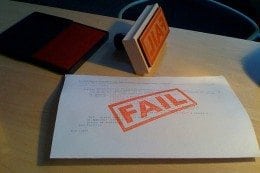- sales
- Blog post
Don’t try to be good at every thing – be the best at one thing
Think of some great salespeople you know and admire. Are they at the top because they excel at all of the various skills and aptitudes involved in selling?
Probably not. In fact, it’s not uncommon for a top salesperson to have one or more glaring deficits. Maybe they’re hopeless presenters. Or not good with details. Or rub some people the wrong way.
But it’s guaranteed they’re exceptional at something.
It’s nice to be well-rounded, of course. But the salesperson who spends an equal amount of time trying to be a great networker, a super closer, a master at product knowledge, a major-league prospector and a world-class negotiator may very well be the worst salesperson at your company.
Identify your talents
Why? Because people who excel in sales have discovered a secret – you can be great at one thing but not everything. The key to success is identifying your innate talents and then pushing the envelope to develop the skills and knowledge base that will enhance that talent.
In other words, if you have a natural talent for networking – that is, for your entire life you’ve found it easy to meet new people and create productive connections with them – your path to sales success is recognizing that talent and developing it. Even if you’re an average negotiator and a good-but-not great closer, you can build a career on being better at anyone else at building relationships that lead to sales.
Warren Buffett’s secret
Warren Buffett, for example, figured out early in his life that patience was one of his great strengths.
Arguably the world’s most successful investor, Buffett made patience the core of his investment strategy. He’s the first to say he isn’t the smartest investor in the world, or the best number cruncher. But he’s really good at taking the long view: investing in companies whose trajectory he could forecast with confidence over the next 20 years.
Given his limitations, he missed some big opportunities – Microsoft comes to mind – but made a fortune on companies like Dairy Queen, Coca Cola and GEICO.
What’s your strength?
A strength is defined as “consistent near-perfect performance in an activity.” Only you can figure out what your strengths are. And the best place to look is in your own past. What is it that you found easiest? Where were you successful? That’s where your talent lies. That’s what you should develop.
What aspect of selling do you really excel at? Are you competitive? Do you love moving that sale the last few yards? Maybe your strength is closing.
Do you relish searching for new business and spotting opportunities others miss? Maybe business development is your unique talent.
Do you genuinely enjoy making cold calls and quickly getting strangers to perceive you as someone worth listening to? Maybe you’re a natural prospector.
Do you excel at getting people in touch with what they really want and finding common ground with them? Maybe account development is your strength.
What about your weaknesses?
The last thing you want to do is invest huge amounts of time trying to “fix” your weaknesses. Successful people don’t do that; they capitalize on strengths and “manage around” weaknesses. In other words, spend enough time on your weaknesses to keep them from hurting you. But don’t overinvest in them. Your career goal should be to become world-class in one area.
Source: Now, Discover Your Strengths, by Marcus Buckingham and Donald O. Clifton, Ph.D. Published by Free Press.

Get a demo of all our training features
Connect with an expert for a one-on-one demonstration of how BTS Total Access can help develop your team.



